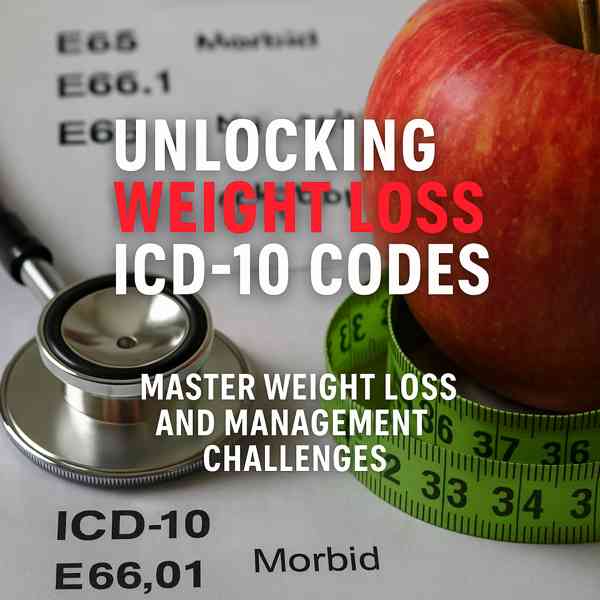
Whether you’re a medical professional, billing specialist, or patient navigating claims, understanding weight loss ICD-10 codes is key.
In this article, we’ll break down what ICD-10 codes are used for weight loss, how to apply them, and what you should know for accurate recordkeeping.
What Are ICD-10 Codes?
ICD-10 stands for the International Classification of Diseases, 10th Revision.
Each diagnosis is assigned a unique code, which is used for:
- Insurance billing and reimbursement
- Organizing medical statistics
- Communicating diagnoses between professionals
Top Codes Used for Documenting Weight Loss
Choosing the correct code depends on the cause, severity, and context of the weight loss.
Key codes include:
- R63.4 – Abnormal Weight Loss
This code applies when a patient loses a significant amount of weight without trying, often due to illness.
- Used when weight loss is guided by professional support
Often applied in cases involving nutritional intervention or guidance.
- Z72.4 – Inappropriate Diet and Eating Habits
- E66.9 – Obesity, Unspecified
- Applied in extreme undernutrition cases, often linked with weight loss
Documenting Unexplained Weight Loss Properly
R63.4 is the most commonly used ICD-10 code for weight loss, but it must be applied correctly.
- There is no intentional diet or fitness program involved
- click here Weight loss is a primary symptom in evaluation
- Additional testing is required to rule out causes
Avoiding Mistakes in Documentation
To avoid claim denials or coding errors:
- Always specify if weight loss is intentional or not
- Include context like depression, cancer, or malabsorption
- Use supplemental Z-codes for counseling or screenings
- Be sure they make sense in context
ICD-10 for Weight Management Programs
If you’re coding for a structured weight loss program or health coaching, consider using these Z-codes:
- Z71.3 – Dietary Counseling
- Can apply to coaching or fitness counseling
- Z13.21 – Encounter for Nutritional Screening
These codes can support insurance claims for wellness, prevention, and obesity treatment plans.
Final Thoughts on Weight Loss ICD-10 Codes
Whether you’re coding for unintentional weight loss or part of a managed care plan, accuracy matters.
To summarize:
- Most common diagnosis for unknown causes
- Z-codes = Counseling, prevention, and health maintenance
- E-codes = Nutritional or medical malnutrition
When in doubt, document fully and consult with a certified coding professional.